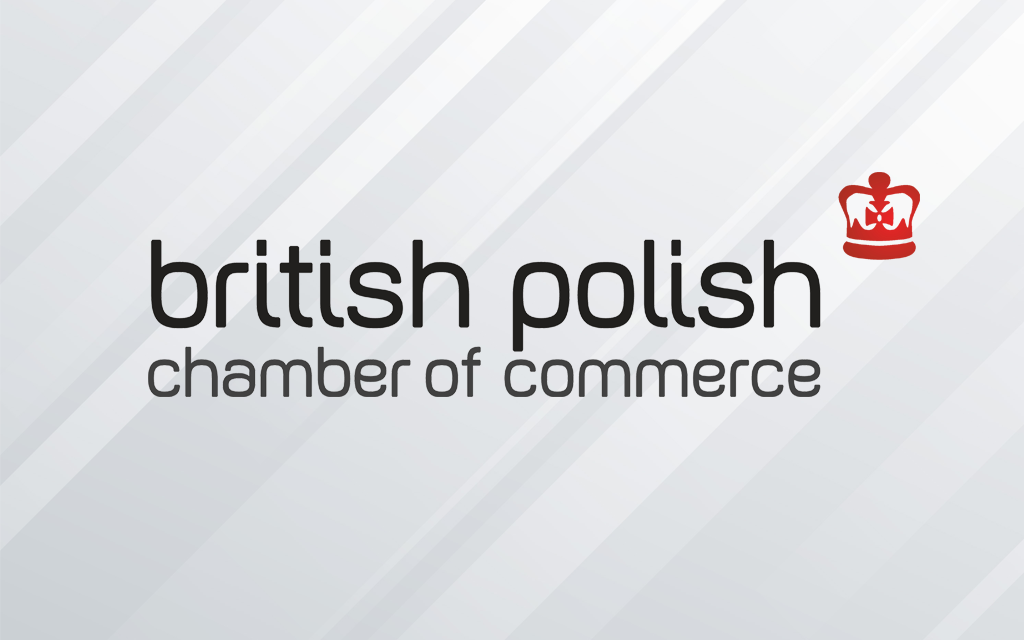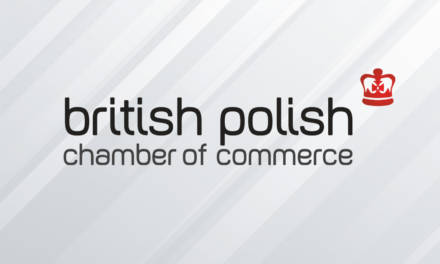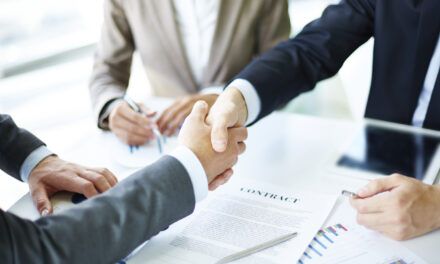Few consultants in Poland have such a long and illustrious association with CSR, sustainability and the environment, social and governance (ESG agenda) as does Deloitte’s Irena Pichola, who has been a partner in sustainability consulting there since 2015, and is now global lead in climate action and sustainability for the public sector. The BPCC’s Michael Dembinski talks to her about how business goals have moved on from the days when only growth and profits mattered.


There’s a broad overlap between what companies consider to be ‘corporate social responsibility’, ESG, and sustainability as a whole. How do these three terms encompass the approach taken by corporates to the non-financial aspects of running a business? Do they essentially mean the same or do we need to understand the nuances between them?
As a reminder, ESG stands for: Environmental, Social and Governance. The quantitative aspects of ESG help link CSR measures with running a business. Those who for many years have been viewing CSR in accordance with the EU definition, and emphasised that corporate responsibility is about the impact on the society, environment and economy, see many similarities. Others point to the differences between ESG and CSR and the stereotypical perceptions that corporate social responsibility is outside running a business. Such thinking does not help realise the potential, also the business potential, of the efforts that are taken. ESG is having an increasing impact on the financial performance, decisions taken by investors and the financial world. We are no longer talking about a single company or even an industry, but about the functioning of a given company in the entire ecosystem and about its promises to the staff, investors, the world in general, or the local community. Having worked in this area with biggest companies in the Polish market, we clearly see that they are increasingly attaching a high priority to ESG, and this translates into actual decisions taken to progress towards sustainability. What is sustainability then? In my opinion, it is an approach to running a business in which good financial performance in the long term provides opportunities for growth for future generations.
The word ‘sustainability’ in Polish is generally and wrongly translated as ‘zrównoważony rozwoj’, literally ‘balanced development’, suggesting spatial equilibrium rather than temporal endurance. The point of a sustainable business is one that survives the ups and downs of economic (and indeed) historical cycles. ‘Balance’ suggests not falling over sideways. Do you, in your work with Polish firms, feel that senior management understands what sustainability is all about?
For the past 50 years we have been borrowing from the environment — we now consume 1.6 times more resources than the Earth’s regenerative capacity. Additionally, IPCC’s sixth report, published in April 2022, revealed that in 2010-2019 average annual global greenhouse gas emissions were at their highest levels in human history, with the rate of growth of 56 billion tonnes on average. Without immediate, effective and fair measures to tackle climate change we are putting the lives and livelihoods of people around the globe, the health of ecosystems and biodiversity at risk. The business world has started realising that the current business models are about to change significantly and this affects also the way corporates operate. Companies realise that to ensure stable, long-term economic growth, we must take appropriate measures to use the resources in a more sustainable and responsible way. Having worked with over 200 companies in Poland and having supported them on their path towards sustainability, we have been seeing this change. Our experience has shown that incorporating ESG into the strategy brings multiple benefits to the organisation: it boosts revenue growth, reduces costs, mitigates the risk of regulatory and legal intervention, improves employee performance and attracts the best talent. This is because more sustainable products and services can attract greater numbers of increasingly informed consumers. There are not many businesses which still cannot see or understand these trends. There are, however, those which despite seeing the need for change, procrastinate, until it becomes a statutory requirement. The truth is though that later implementation of the changes may mean giving in to the competition, which will be faster in taking such historic opportunity — to its own benefit and that of future generations.
Big corporates can afford in-house compliance teams, and can also reach out to engage the best consultants and lawyers to ensure they remain within the letter of the law. SMEs tend to find compliance with new laws or directives burdensome, despite the usual thresholds below which regulations do not apply. Yet SMEs do tend to adapt, and sustainability often appears in their mission statements. How do you see the implementation of CSR/ESG/sustainability in SMEs? Do Polish SMEs differ in this regard from those from western Europe?
One characteristic of the Polish economy is a very large proportion of micro-businesses among SME. In Germany, among companies with less than 250 employees, less than one third are the smallest ones (up to 9 employees), whereas in Poland it is over a half. This is important, because the smallest businesses are often exempt from various regulatory obligations. This does not mean, however, that they do not want to or will not have to become more engaged in sustainability. Apart from the beliefs of the owners, a lot of the change will be driven by rising expectations of consumers and business partners. This cannot be downplayed, because only some small businesses sell their products and services directly to consumers, whereas many are contractors of larger entities, both Polish and international.
We should remember that Poland, just as other countries in Central and Eastern Europe, are very open economies and joining global supply chains was one of the factors behind the economic success they enjoyed in the past 30 years. Today, along with the rising awareness and new regulations, the expectations large companies have of their contractors will also rise. It will no longer be only competitive prices or high quality products, but also a balanced carbon footprint. However, quality supply chain management by large entities should not be reduced to increasing requirements, but also include support offered to smaller businesses so that they can satisfy those standards.
The response of the Polish people to the plight of Ukrainian refugees has been exemplary; companies have shown compassion and understanding, particularly those with many Ukrainian nationals among their workforce. On the other hand, there are also firms which, for whatever reason, are continuing to do business in Russia. As global outrage at Russian barbarism continues to grow, what do you see as the long-term repercussions for brands that remain in the Russian market?
What we have been seeing since the outbreak of the war in Ukraine is a clear sign that consumers can unite and make an actual impact on the decisions of many businesses. This is a surprising change, because we used to believe that an entity cannot influence the system or business decisions. We have just seen that this is not the case. The research we have been carrying out at Deloitte clearly shows that over the past few years, the public awareness and consumer expectations of corporate responsibility in various areas have increased.
Businesses are increasingly responsive to those needs and implement ESG strategies, but because these are advanced and complex processes, their implementation requires time. However, consumer expectations change along with the dynamic changes in the international environment and cover an increasingly large area. An example: the strong response to the war and humanitarian crisis. The past few weeks have shown that consumers believe that they can demonstrate their resistance: they boycott brands in the media and decide not to shop for certain products. PKO BP’s data published at the end of March clearly shows that the turnover of retail chains that have not decided to pull out of the Russian market is significantly lower than of those which have halted their business in Russia.
The future course of the war will determine consumer response and hence the attempts to impact the behaviour of businesses. What we can expect is first of all, consumers’ growing conviction that they have a real impact on the business and a wish to increase it. Specifically younger generations want to have that impact on the world around them. Secondly, brands which decide to remain in Russia may lose their business partners and face difficulties with finding new ones. Thirdly, organisations which have not pulled out of the Russian market may experience internal HR difficulties, specifically if there are both Ukrainian and Russian employees in teams or if the staff is against the war and the employer has not taken steps to end their business in Russia or support Ukrainian refugees.
As far as the ESG market is concerned, social issues and integration of corporate social responsibility into branding as well as businesses’ readiness to take a firm stance on environmental, social … and political issues will become increasingly important.
The Russian invasion has hastened the EU’s resolve to transition from fossil fuels faster than previously planned. How do you see the REPowerEU programme in this context?
The new geopolitical landscape and the situation in the energy market require that we radically speed up the transition to clean energy and reduce Europe’s dependence on unreliable and untrustworthy fossil fuel suppliers.
After the invasion on Ukraine the arguments to fast-track the transition to clean energy have become more powerful than ever. The European Union imports 90 percent of its gas, with Russia providing approximately 45%, though the levels vary by individual EU member states. Around 25% of oil and 45% of coal is imported from Russia. EU says that moving away from Russian fossil fuels is necessary and can be done before 2030.
Full implementation of the Commission’s ‘Fit for 55′ proposals would already reduce our annual fossil gas consumption by 30%, equivalent to 100 billion m3, by 2030. With the measures in the REPowerEU plan, we could remove at least 155 billion m3 of fossil gas use, which is equivalent to the volume imported from Russia in 2021.
The Commission proposes to work with member states to identify the most suitable projects to meet these objectives, building on the extensive work done already on national Recovery and Resilience Plans. Considering the increasingly urgent need to decarbonise the EU, as laid down in the Paris Agreement, adopting more ambitious CO2 emission reduction targets and defining additional measures to plan and finance decarbonisation initiatives — which actually means delivering the second pillar of REPowerEU — should help improve the chances of reaching an emission reduction rate to keep the global temperature rise at 1.5C.
Communicating one’s CSR/ESG strategy to stakeholders is key — what factors would you identify as constituting best practice? How has the growth of social media changed the way companies reach out to different stakeholder groups? How can companies avoid being labelled as ‘greenwashers’?
The strength of consumers and NGOs, which today have an actual impact on the business, in part comes from the growth of social media. Social media are an easy and accessible way to publish information, discuss or derive information or confront ones’ views or knowledge. Today, brands gain popularity not through TV ads, but by engaging influencers. For several years now, we have been seeing a new type of social media influencers — people who promote sustainability in general, present environmental and social problems on their profiles, publish content to show businesses’ (lack of) responsibility and attract an increasingly well-educated and informed group of consumers. Therefore, social media play a key role in brand communication, including communication of corporate, social and environmental responsibility initiatives. However, considering that consumers are becoming increasingly vigilant against inconsistent messages, many brands are accused of greenwashing. To prevent it, brands must invest in developing a comprehensive ESG strategy and translate its targets and principles into the brand’s communication strategy — not a random, but a comprehensive one. Let’s not forget that consumers expect measures that are consistent and impactful, and align with the culture and various processes within the organisation. There is a special role to be played in the process by the management and supervisory boards — top executives should provide a strong impetus to the development of a comprehensive and deliberate strategy which will not be a fig leaf, but a strategic plan on how to operate in this changing climate and business reality.


























